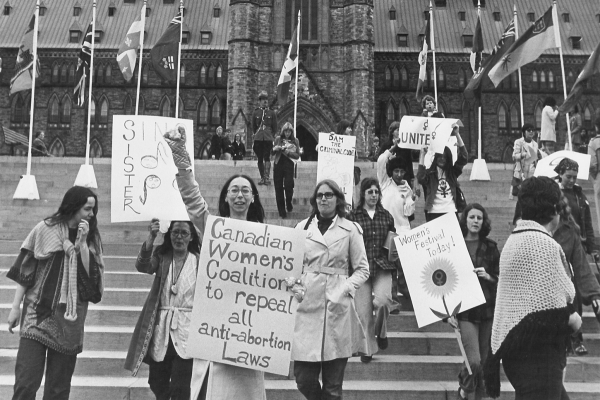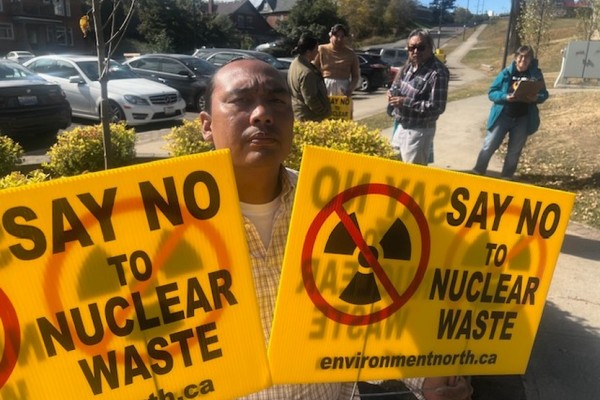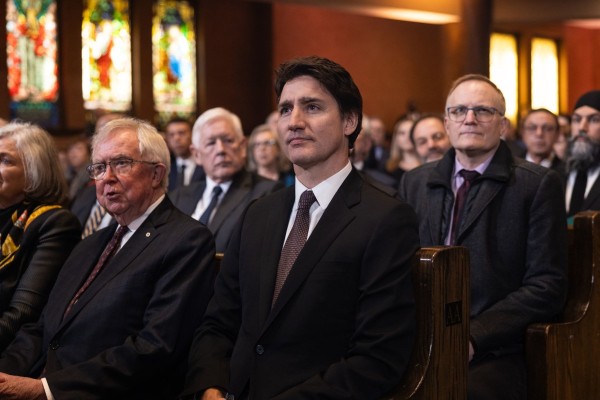-

Pierre Poilievre and the Conservatives have a residential school denialism problem
It’s time for Pierre Poilievre and the Conservatives to move on from Aaron Gunn and leave residential school denialism behind once and for all. If the Conservatives are truly serious about “common sense,” they must unequivocally renounce residential school denialism—or else risk paying a political price on April 28.
-

Canadian popular history suppresses memory of activism
Pretty much everything that we might find redeemable about Canadian society has come as a result of community-based struggles and social movements. Yet, most people have little awareness of the historical significance of collective action because public memory practices rarely recollect, never mind detail, histories of activism.
-

The battle for Steensby Inlet is not over
Inuit hunters from a small community in Nunavut are demanding a reassessment of a proposed expansion to an iron ore mine. Baffinland Iron Mines intends to build a port and railway to Steensby Inlet, near the Inuit community of Igloolik, as part of a plan to quadruple production at its Mary River Mine. The port and railway were originally approved by the Government of Canada in 2012.
-

Responding to Donald Trump with a popular democratic project for Canada
The unfolding climate catastrophe, growing inequality, the disintegration of the country’s social safety net, and the rise of profoundly reactionary yet increasingly viable political forces at home and abroad make it imperative for Canadian socialists to develop strategies to begin to substantively challenge Canadian elites at the national scale.
-

Nuclear industry selects site in northwestern Ontario for waste disposal amidst regional opposition
On November 28, the Nuclear Waste Management Organization (NWMO) announced it had selected Wabigoon Lake Ojibway Nation and the municipality of Ignace as “host communities” for all of Canada’s high-level nuclear waste. Yet the extent to which the people of northwestern Ontario consent to the proposed waste repository is, at best, unclear.
-
.v1_600_400_90_s_c1.jpg)
Why socialists need to understand the legacy of Malcolm Norris and Jim Brady
For Malcolm Norris and Jim Brady, the struggle for socialism was inextricable from the struggle for Indigenous rights. Their vision of social and economic democracy was rooted in the Métis experience of violence, racism, and dispossession at the hands of the Canadian state, including after the 1870 Red River Resistance, and the implementation of the scrip system.
-

How did Trudeau’s performance stack up to his promises?
No government fulfils every promise it makes to voters at election time. Still, looking back on the Trudeau government’s performance over the past nine, sometimes chaotic years—with the exception of major policy achievements like child care, pandemic income supports and dental care—this government has consistently overcommitted and underdelivered.
-

The term PTSD fails to capture the Palestinian experience
In its many forms, the global protest against the continued genocide of Palestinians—the refusal to be silenced, even against threats of arrest, deportation, and physical violence—not only challenges the national collective myth of the Israeli settler state, but also enacts a refusal to be complicit in violence carried out in its name.
-

Canadian forestation policies add fuel to the fires
Across Canada and abroad, the commercial forest industry has created monoculture conifer plantations of lodgepole pine, spruce and Douglas fir. It’s common practice to use glyphosate and brush saws in forests to destroy broadleaf species—such as aspen, birch, cottonwood, willow and alder—which are crucial for biodiversity and sequestering carbon.
-

Colonialism, capitalism, and Canada, 1500-2025: How the past is before us
This challenging and illuminating account is truly a new history for the twenty-first century, one that lays out how the country’s past lies before us, demanding redress. The two books that comprise this retelling of Canada’s rise from a colony to a nation that has routinely and relentlessly colonized, should and will be widely read by all concerned with basic issues of social justice.



